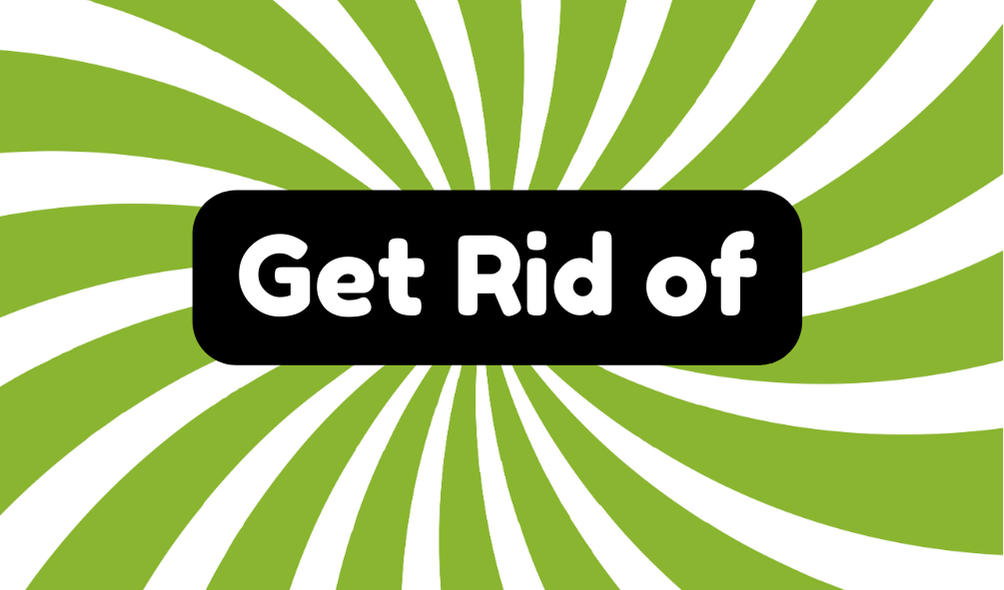The phrase "get rid of" means to eliminate, dispose of, or discard something considered unnecessary. Its origin lies in informal phrasal verbs that reflect a cultural shift towards minimalism and simplicity. For example, you might say, "I need to get rid of old clothes." This concept has gained traction in today's fast-paced world, aligning with personal growth and emotional well-being. It's not just about physical clutter; it extends to relationships and negative habits too. Understanding this phrase's history gives you a better appreciation of its modern significance. There's much more to explore on this topic, so keep going.
Synonyms
When you think about getting rid of something, several synonyms come to mind that capture the essence of this action. You might consider words that highlight your intention to declutter your life. It's crucial to recognize your discard options, as they can greatly influence how you handle your possessions.
- Dispose: To throw away poorly functioning items.
- Eliminate: To remove distractions or relationships that don't serve you.
- Purify: To cleanse your space of unnecessary clutter.
Example of Sentences
Understanding how to effectively get rid of unnecessary items can help streamline your life. If you're questioning your discarding habits, here are a few examples to contemplate:
- "I finally decided to get rid of old electronics gathering dust in the corner."
- "Letting go of those faded clothes provided an emotional release I didn't expect."
- "She made it a point to discard expired food after realizing how wasteful it was."
Each sentence showcases the empowerment that comes from decluttering. It's not just about physical space; it's about creating a mindset that values intentional choices. Properly examining why you hold onto certain items is essential for genuine progress. Remember, the process is as important as the outcome, so evaluate how you choose to let go.
Origin
While many might think of "getting rid of" as simply tossing things away, its origin as an informal phrasal verb reveals deeper nuances. Historically, this term has roots in casual language, frequently appearing in informal expressions related to decluttering and shedding unnecessary baggage. You might notice its popularity in everyday dialogues about physical items or emotional burdens. This expression implies a more significant action—letting go of what no longer serves you. Its rise in use mirrors a cultural shift toward minimalism and intentional living. By understanding its background, you can appreciate not just the act of disposal, but also the mindset behind it, encouraging you to critically evaluate what you truly need in your life.
Collocations
Collocations play an essential role in grasping the full essence of the phrase "getting rid of." You often hear it paired with words like "clutter," "junk," or "habits," illustrating specific contexts where removal becomes necessary. Understanding these collocations with "get rid" can enhance your approach to decluttering and simplifying your life. Here are some commonly used phrases:
- Get rid of old clothes
- Get rid of bad habits
- Get rid of unnecessary clutter
Recognizing these phrases for decluttering not only clarifies your intentions but also shows the emotional weight behind each action. It's easy to think decluttering's just about space, but it's about creating a better mental environment too. Get rid of what doesn't serve you, and watch how it transforms your life.
How to Use in Everyday Language
Incorporating the phrase "get rid of" into your everyday language can greatly enhance your conversations about organization and personal well-being. You can use it in various everyday scenarios, like when you're discussing decluttering your home or reevaluating relationships that weigh you down. Phrases like, "I need to get rid of these old clothes," or "Let's get rid of negative energy," can foster meaningful dialogue. However, be mindful; overusing this expression may make it lose its impact. Challenge yourself to think critically about what you truly need to keep and what's best to discard. Fresh expressions of decluttering will keep your communication lively while emphasizing the importance of liberation from unnecessary burdens in a pragmatic way.
Why Is It Still Relevant Today?
Many people find the concept of "getting rid of" remains essential in today's fast-paced world. As we navigate constant changes, this idea gains cultural significance, offering a way to separate what's essential from the unnecessary. You might've noticed how letting go can create emotional space, allowing for new opportunities and experiences. This relevance doesn't just apply to physical decluttering; it extends to relationships and old habits that no longer serve you. In an era obsessed with accumulation, learning to discard helps manage mental load, fostering innovation and creativity. While the urge to cling to the past is strong, embracing the process of getting rid of opens pathways for personal growth and a more intentional life, reflecting the emotional impact of our choices.







